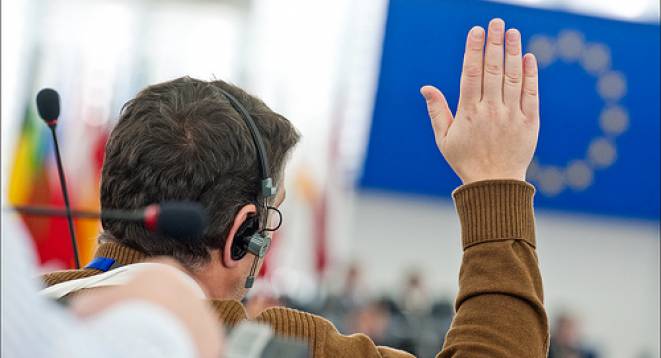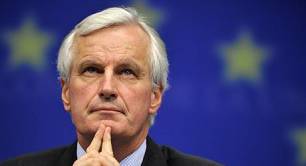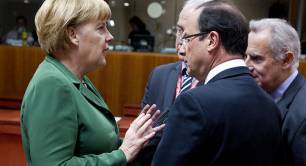Why Europe's new to-do list could boost the social economy

Europe just got interesting for social entrepreneurs. After 2,000 people from diverse social economy organisations gathered in Strasbourg to share their views on the future of social enterprise, 10 key actions for governments and public bodies across Europe were announced under The Strasbourg Declaration.
Two days of intensive meetings and debates held at the participatory event on social entrepreneurship "Social entrepreneurs: Have Your Say!" co-hosted by the European Economic and Social Committee and the European Commission lead to The Strasbourg Declaration – a list of 10 action points for EU member states to implement.
The declaration brings the views of social economy organisations across Europe together, and seeks to bring member states up to date with the current state of the social economy.
Recent opportunities for social enterprise in Europe include the 2011 Social Business Initiative, new European opportunities for finance and new public procurement directives, and the declaration seeks to keep progressive policy and initiatives moving forward.
"We want to send a message to the outside world and pack a punch," said Jacki Davis, Master of Ceremony at the European Commission's social enterprise event last week.
As the reshuffle of European Commission looms with elections taking place in May to form a new commission in the Autumn, the declaration comes at a key juncture in European politics. It could determine how the initiative to build an ecosystem for social enterprise is taken forward.
"The worry is that the Social Business Initiative has not been institutionalised, there are no job descriptions with social enterprise in the title," said Jonathan Bland, Managing Director of Social Business International and founder of E3M and member of the European Commission's Expert Group on Social Entrepreneurship (GECES).
Currently the European Commission’s Directorate General Enterprise and Industry is directly responsible for social economy matters.
Out of 900 people working in the Directorate General Enterprise and Industry, "just 10 of those work towards matters of the social economy" said Madi Sharma, a member of the European Social and Economic Committee.
"One person looks after women and business, and there is nobody with the official responsibility of social business" she said.
However, since 2011 Michel Barnier, European Commissioner for Internal Market and Services, has spearheaded the social enterprise agenda in Europe, personally calling for the participatory social enterprise conference held in Strasbourg.
Under Barnier, the social economy has been brought into the context of the commission's work on 'Business environment', which includes the development of the Social Business Initiative, and Social Investment Funds.
"I want to create a sustainable impetus that nothing will be able to halt," said Barnier. "We've got it up to a high level, and we don't want it to sink back down again."

At the conference, European commissioners affirmed the view that social enterprises must play a bigger role in the future of Europe, and that new actions are central to unlock their potential for smart, sustainable and inclusive growth.
Martin Shulz, president of the European Parliament highlighted social economy organisations as key to regaining the trust of European citizens, and members of the European parliament discussed pushing the social economy to the forefront of Europe's 2020 strategy.
"You don't get that much political support behind an agenda, unless it's being taken seriously," said Baroness Glenys Thornton, Shadow Equalities Minister in the House of Lords and Honorable Secretary of the ‘All Party Parliamentary Group for Social Enterprise’.
The Strasbourg Declaration is intended for use as a tool to keep social enterprise and the social economy climbing into decision making circles within Europe.
But a declaration is one thing, and action is another."There needs to be a real push for the new European Commission to embed the social business initiative," said Bland, calling on social economy organisations to sign up to the declaration, and present it to their local political representatives.

Europe's social economy priorities: The Strasbourg Declaration
1. The EU must follow through on all the actions in the SBI. It should develop a second phase of the SBI that broadens its scope, deepens its partnership with Member States, regional and local authorities, civil society organisations and key players in the ecosystem.
2. The European Economic and Social Committee, the next European Commission (with a dedicated inter-service structure) and the next European Parliament must take full ownership and deliver on the actions suggested in Strasbourg.
3. There must be a stronger engagement at EU, national, regional and local levels with the social enterprise community in the co-creation of new policies to support social enterprise, suited to the local context.
4. The Commission must ensure that its commitment to create an eco-system for social enterprise is mainstreamed in its policies.
5. In partnership with the social enterprise sector, Member States, regional and local authorities must fully support the growth of social enterprises and help them build capacity. For example through legal frameworks, access to finance, business start-up and development support, training and education and public procurement.
6. The European institutions and Member States should reinforce the role of social enterprises in structural reforms to exit the crisis, notably where the social economy is less developed.
7. The Commission, the Member states and regions must boost cooperation between social enterprises across borders and boundaries, to share knowledge and practices. Similarly, all public authorities should cooperate better between themselves and enhance their capacity to support social enterprise growth.
8. Public and private players must develop a full range of suitable financial instruments and intermediaries that support social enterprises throughout their life-cycle.
9. Social enterprise still needs further research and national statistical collection for a better understanding, recognition and visibility of the sector, both among policymakers and the general public.
10. In this new Europe, all players need to look at growth and value creation from a wider perspective, by including social indicators and demonstrating positive social impact when reporting social and economic progress.
The Strasbourg Declaration will be available here soon for people to sign up to and show their support.
If you missed the event you can watch the livestreamed sessions here.


